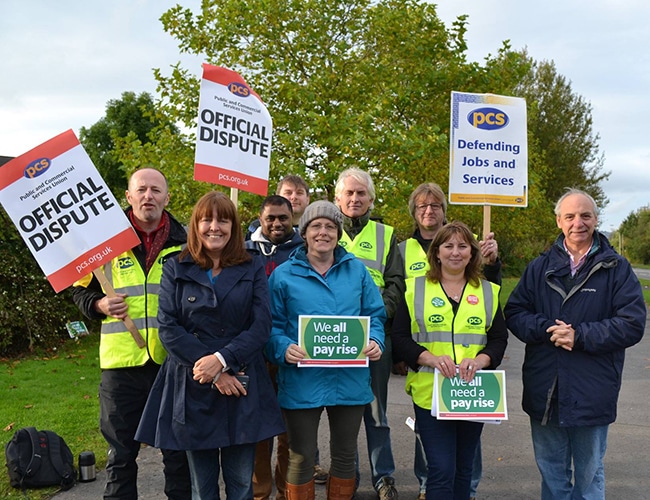- 14/02/2019
- Posted by: Mike Hedges MS
- Category: Uncategorized

MIKE HEDGES WELCOMES NEWS THAT WELSH GOVERNMENT IS GOING TO REVIEW THE IMPLIMENTATION AND DELIVERY OF THE WELSH INDEPENDENT LIVING GRANT.
Speaking after the issue was debated at the Assembly, Swansea East AM, Mike Hedges said… ‘I greatly welcome the news that the Welsh Government are going to pause the transition to the scheme being delivered to Local Authorities, and the move for these local authorities to fund and deliver the Welsh Independent Living Fund. The uncertainty which the transfer of this fund to a Local Authority has led to has given extra worries to disabled people, and in some cases led to people being worse off. I hope that the news this week will give some solace and reassurance to disabled people in Wales. Supporting disabled people remains at the heart of the work of the Labour Party and Welsh Government and I look forward to seeing this work developed further in the future through a properly funded WILG.
Mike Hedges AM – I Heard Helen Mary Jones say she’s making a different speech to the one she expected, following the statement by the Minister. I’m going to do something different—I’ll be voting a different a way than I expected to, following the statement by the Minister, because I was going to vote in favour of the Labour Party policy if the Minister hadn’t made the statement that was made there.409
I’ll start by restating Labour Party policy agreed by the Wales Labour Party conference in 2018—a policy I supported then and support now: defend and save the Welsh independent living grant. The Welsh independent living grant was introduced to help people who previously claimed from the UK Government’s independent living fund, which closed in 2015. More than 1,500 people are helped by the Welsh independent living grant scheme across Wales and recipients all have a very high degree of care and support needs. The Welsh independent living grant was due to run until the end of March 2017, but it had been agreed that funding would continue for another year. The annual £27 million fund would then transfer directly to local authorities during 2018-19 so they could meet the support needs of all former ILF recipients by 31 March 2019.410
This conference called upon the Welsh Labour Government to maintain the Welsh independent living grant, at least until the next Welsh Assembly election, and to do so whilst retaining the following principles: preservation of the triangular structure of the grant between the local authority, the individual and a third party stakeholder; that the available funding should be ring-fenced in the future to ensure that allocated moneys are used for the purpose for which they are intended; that the well-being of disabled people should not be put at risk; that the most vulnerable people in society should be protected not endangered; and that quality of life is a human right for our vulnerable individuals, rather than merely maintaining existence.411
As a member of the Petitions Committee, I was there when we received evidence. The primary concerns raised by the petitioner and others relate to a fear over the impact of transferring responsibility for supporting former ILF recipients to local authorities, in particular the financial ability and resources of local authorities during a time of austerity to adequately replicate the focus on independent living promoted by the ILF and WILG. And I’m not criticising local authorities. Anybody who’s got any knowledge of local authorities will realise just how much pressure they are under. It’s like squeezing a balloon—every time you push it in somewhere, it goes out somewhere else.412
The concerns also relate, however, to previous experiences of the petitioner and others supporting his campaign of working with or receiving services from local authorities. This included a concern over the understanding of the term ‘independent living’ itself:413
‘It is no secret that a Medical Model attitude towards disabled people remains endemic and institutionalised across the public sector and it is clear from the regional needs assessments and particularly Social Care Wales’ summary report, that there is no understanding of the distinction between “being independent” [meaning managing without support] and “Independent Living” that Welsh Government have formally accepted as meaning disabled people living the lives they choose, in the way they choose and supported how, when, where and by whom they choose.’414
Another further concern expressed by the petitioner related to a loss of the tripartite structure within the operation of the ILF. This incorporated the recipient of funding, the central administration of the fund and the local authority in making assessments and reaching decisions about care and support. The petitioner explained:415
‘the other element of the Independent Living Fund was that independent Social Workers carried out the assessments and reviews so that disabled people felt protected by the independent oversight of a qualified and experienced social worker who could not be intimidated by’416
or instructed by the local authority because they weren’t working for it.417
I welcome the statement by the Welsh Government that it will provide additional funding to local authorities for the cost of independent social workers and additional care hours that may result from these independent assessments. This means that there can be no question of—418
17:20
Copy To Clipboard Share To Facebook Share To Twitter Share To LinkedIn
Video
Mark Isherwood – Will the Member give way?419
Copy To Clipboard Share To Facebook Share To Twitter Share To LinkedIn
Video
Mike Hedges AM – Can I finish this sentence? There would be no questions of changes to a care and support package being a cost-cutting measure. Certainly.420
Copy To Clipboard Share To Facebook Share To Twitter Share To LinkedIn
Video
Mark Isherwood – Given that former recipients of the independent living fund had to qualify for that by proving that they were severely disabled, why should they have to prove it again when, rightly, we criticised UK Government when they told people they’d have to prove it again?421
Copy To Clipboard Share To Facebook Share To Twitter Share To LinkedIn
Video
I think this is because some people have—local authorities had their needs reassessed and downgraded, and this is an opportunity for them to get reassessed and upgraded. It is something that disabled people themselves want to see. It’s not perfect, and I’m sure we wish we weren’t here. I wish that, last April, the Labour Party conference decision had been implemented in this place, but it wasn’t, and that’s nothing to do with the Cabinet Minister—or the current leader.422
I welcome the Minister’s acceptance that the underpinning principle in undertaking independent assessment is that the result should be consistent with people’s agreed well-being outcomes. As there is no financial barrier, no-one needs have less favourable care and support than they currently have, and ‘currently’ means whatever they had before the changes were introduced by local authorities.423
I welcome the preservation of the triangular structure of the grant between the local authority, the individual and a third party stakeholder. I believe the Government of Wales have met the spirit of both the petition and the Labour Party conference resolution. I just regret that it’s taken so long. Finally, I thank Nathan Davies for his continual and consistent campaigning—I think I’d describe him as ‘indefatigable’—and Julie Morgan for coming through now and providing this continuing support that I believe and I think the vast majority of people in my party believe is something that should have been done a long time ago.

